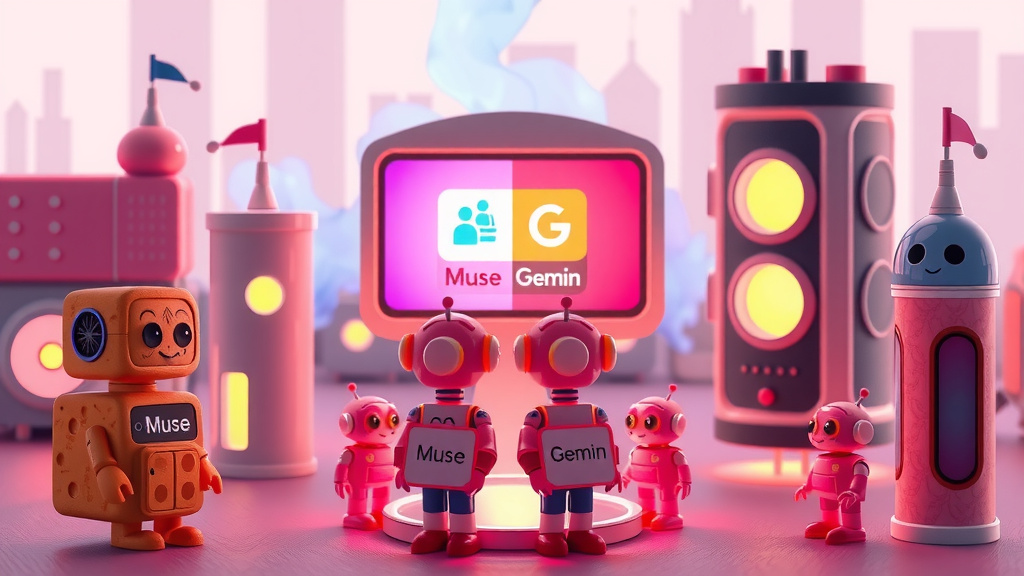AI Revolution: Microsoft's Muse, Google's Gemini, and the Future of Generative AI
The world of artificial intelligence is rapidly evolving, with new breakthroughs and innovations emerging every day. Microsoft's recent announcement of its generative AI model, Muse, has sparked a heated debate in the gaming industry. Muse is designed to help game developers build parts of games, but some experts are skeptical about its potential.
Meanwhile, Google has unveiled its AI co-scientist, a tool that aims to make research by humans faster and more efficient. The AI co-scientist is designed to generate novel testable hypotheses, detailed research overviews, and experimental protocols. It's built on Google's Gemini 2.0 AI assistant and can assist humans in various ways, such as shortening the time it takes to review detailed literature.
The rise of DeepSeek, an open-source AI developer, has also been making waves in the industry. DeepSeek's approach prioritizes speed, cost-efficiency, and accessibility, earning it immense goodwill within the global AI research community. Its focus on efficiency and technological ingenuity has led to the development of cutting-edge capabilities without heavy infrastructure dependencies.
However, not all AI innovations are welcome. A Minnesota bill seeks to disable AI tech used to create nude or sexual images of people, highlighting the need for responsible AI development. The bill's author, Sen. Erin Maye Quade, said it's meant to extend the state's relatively new law barring nonconsensual sexual deepfakes.
In the world of virtual assistants, Amazon's Alexa and Apple's Siri are playing catch-up with AI chatbots. Amazon is set to showcase its new and improved Alexa at a product event, but the more capable voice assistant may not be available for at least another month. Apple has been making Siri incrementally smarter, but it still struggles with basic requests.
The gaming industry is also undergoing significant changes, with thousands of developers being laid off over the past few years. Microsoft's Muse has been poorly received by developers, who believe it will disempower a class of people who own these tools and don't care about how they reshape their lives.
Key Takeaways
- Microsoft's Muse generative AI model has sparked a debate in the gaming industry, with some experts skeptical about its potential.
- Google's AI co-scientist aims to make research by humans faster and more efficient, generating novel testable hypotheses and experimental protocols.
- DeepSeek's open-source AI developer has prioritized speed, cost-efficiency, and accessibility, earning it goodwill within the global AI research community.
- A Minnesota bill seeks to disable AI tech used to create nude or sexual images of people, highlighting the need for responsible AI development.
- Amazon's Alexa and Apple's Siri are playing catch-up with AI chatbots, with Amazon set to showcase its new and improved Alexa at a product event.
- The gaming industry is undergoing significant changes, with thousands of developers being laid off over the past few years.
- Microsoft's Muse has been poorly received by developers, who believe it will disempower a class of people who own these tools and don't care about how they reshape their lives.
- HP has acquired Humane's assets, including its AI-powered platform Cosmos, for $116 million, positioning the company to compete more effectively in the growing market for AI-enabled devices and workplace solutions.
- Palantir has plummeted in value, sparking debate about whether it's time to buy the artificial intelligence leader's stock.
Sources
- Xbox announces 'a generative AI model for gameplay ideation' called Muse, but don't get too excited: Machines aren't about to make games for you just yet
- Analyst Says He’s Worried About Alphabet (GOOG)’s ‘Bread and Butter’
- Report: More AI Training Leads to Higher ROI
- Google Unveils ‘AI Co-Scientist’ To Supercharge Research Breakthroughs
- How DeepSeek Is Influencing Silicon Valley’s AI Landscape
- Minnesota bill seeks to disable AI tech used to create nude or sexual images of people
- Siri and Alexa are playing catch-up with AI virtual assistants
- Xbox Pushes Ahead With New Generative AI. Developers Say ‘Nobody Will Want This’
- Humane, Whose AI Pin Flopped, to Sell Assets to HP
- Palantir Plummeted Today -- Is It Time to Buy the Artificial Intelligence (AI) Leader's Stock
